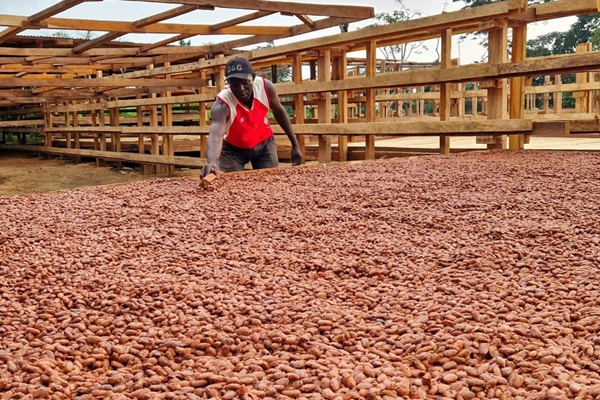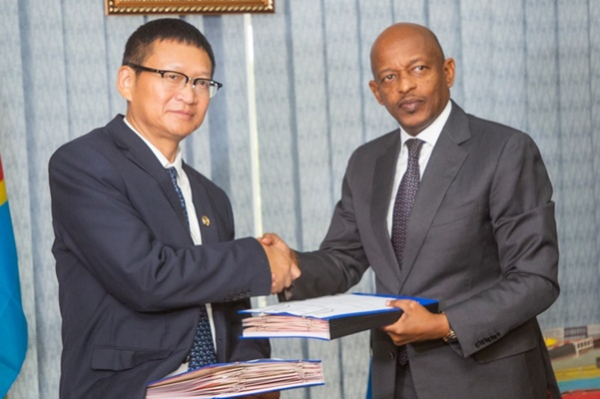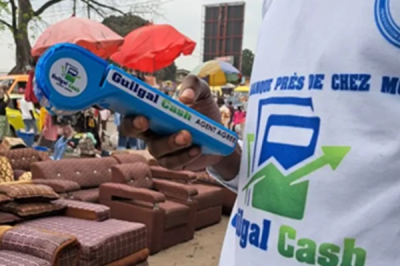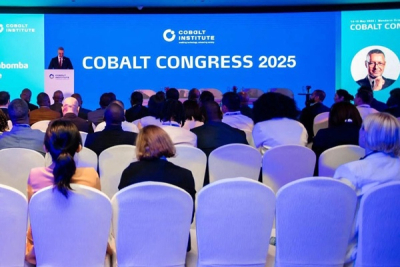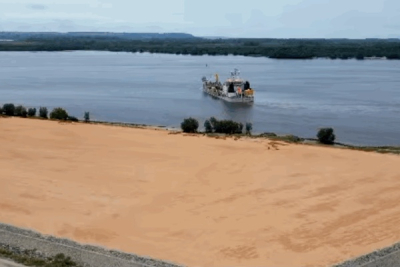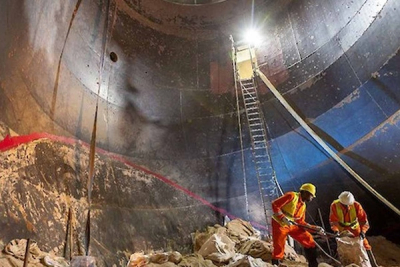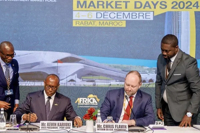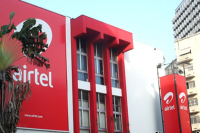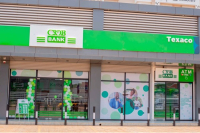
News (639)
Producers and intermediaries in North Kivu’s cocoa sector are increasingly turning to Uganda to sell their products through informal channels, seeking to optimize their marketing strategies.
On May 19, 2025, at least five tons of cocoa (118 bags) were intercepted by the sub-section of the Office national des produits agricoles du Congo (ONAPAC) in Beni, within the Ruwenzori sector (Beni territory). According to authorities, the cargo was being illegally exported to Uganda. This seizure forms part of ongoing efforts to combat fraud in the cocoa sector.
Commenting on the seizure, Kaswera Syvialeghana Alphonsine, Director of ONAPAC in Beni, said such operations aim to discourage illicit trafficking of cocoa, and coffee, in the region.
For several months, sector players have denounced numerous obstacles hindering official marketing channels and encouraging smuggling to neighboring countries. They highlight persistent insecurity in production zones, poor condition of farm roads, proliferation of roadblocks, high transportation costs, and the lack of product traceability in the DRC. These constraints, according to local exporters, hamper cocoa transport through formal channels and push many operators to turn to Uganda.
Congolese cocoa production is primarily concentrated in the eastern provinces, notably North Kivu, Ituri, and Tshopo. However, these regions are often attacked by armed groups–a situation that compromises producer security and severely disrupts the supply chain.
According to data from the Ministry of Foreign Trade, the DRC produced 100,000 tonnes of cocoa in 2024, far from the ambitious target of 3 million tonnes set for 2030.
This article was initially published in French by Ronsard Luabeya (intern)
Edited in English by Ola Schad Akinocho
The Democratic Republic of Congo (DRC) plans to build a freeway linking Banana, which should have a deepwater port next year, to Kinshasa, the political capital. On May 20, the Minister of Infrastructure and Public Works, Alexis Gisaro, and the Chinese company Zhongshi Wosen Technology Co. Ltd. signed a memorandum of understanding (MoU) to advance the project.
According to the Ministry, the MoU entrusts the Chinese company, about which little information is available, with conducting feasibility studies. After this phase, the freeway will be finalized.
However, the Ministry has already confirmed that the infrastructure will span 450 kilometers and pass through Matadi. The port of Matadi, situated on the Congo River, currently serves as the main gateway for goods destined for Kinshasa. It also provides indirect access to the Atlantic Ocean via a river canal, although this limits the size of vessels able to dock there.
The road project is strategic for enhancing the competitiveness of both Matadi’s and Banana’s ports, with the latter scheduled for completion in 2026. The freeway will facilitate the transport of goods between the coast and the country’s interior. Ultimately, it could be integrated into regional networks linking the DRC with other countries in Central and Southern Africa.
The Banana-Matadi-Kinshasa axis is part of the Banana-Kolwezi corridor, which stretches approximately 2,670 kilometers. This corridor was showcased at the 9th edition of Expobéton—a trade show focused on the development of cities, corridors, and special economic zones—as a fully Congolese route that could serve as an alternative to the Lobito corridor, which leads to the Angolan coast.
No precise timetable or budget details have yet been disclosed for the freeway’s construction. Nonetheless, potential challenges are anticipated, including financing mobilization, execution conditions, and investment security, especially since the route crosses areas facing security constraints. These uncertainties previously stalled a railroad project planned to serve the port, which has yet to materialize.
Furthermore, the success of the freeway project may depend on its complementarity with other key investments, particularly in the port, customs, and energy sectors, to ensure a smooth and competitive logistics chain.
This article was initially published in French by Henoc Dossa and Ronsard Luabeya (intern)
Edited in English by Ola Schad Akinocho
Guilgal SA microfinance experienced a sharp increase in assets in 2024. According to its recently published Pillar III regulatory report, its assets reached 120.9 billion Congolese francs (approximately $48.36 million), compared with 71 billion CDF (around $28.4 million) in 2023, representing annual growth of 70%. This performance was mainly driven by the expansion of the loan portfolio, the institution's primary source of income.
Net loans outstanding rose from 56.3 billion CDF ($22.52 million) in 2023 to 103.6 billion CDF ($41.44 million) in 2024, an increase of 84%. Medium-term credit was the main driver of this growth, increasing by 132% over the period.
Customer deposits grew by 59%, reaching 46.5 billion CDF (approximately $18.6 million), reflecting a strengthened capacity to mobilize savings nationally. Shareholders' equity rose by 61% to 21.8 billion CDF (around $8.72 million), supported by fresh capital contributions and the incorporation of unappropriated earnings.
This dynamic growth was accompanied by significant pressure on asset quality. The report highlights a portfolio at risk of 20.5%, well above the industry standard of 5%, indicating a high proportion of loans not repaid on time and exposing the institution to increased credit loss risk.
Gross disputed receivables reached 21.5 billion CDF (approximately $8.6 million), with a provisioning rate of 24%. The report notes that this level of bad debts required a provision equivalent to 3% of assets.
Despite these challenges, performance indicators remained solid overall. Return on assets stood at 3.2%, in line with industry standards, while return on equity reached 17%, exceeding the internal target of 15%. In terms of liquidity, Guilgal SA achieved an immediate liquidity ratio of 24%, meeting regulatory requirements.
For 2025, Guilgal SA plans to continue digitizing its services, develop new financial products tailored to market needs, expand its network with new branch openings, and strengthen its commitment to social and environmental performance.
Founded on September 4, 2012, on the initiative of Professor Frédéric Kalala, COOPEC Guilgal initially operated as a savings and credit cooperative. Thanks to sustained performance, by 2019 it had become the largest cooperative in the western zone of the DRC and subsequently evolved into a microfinance company to overcome the limitations imposed by cooperative status.
Boaz Kabeya (intern)
China’s CMOC and Switzerland’s Glencore hold divergent views on the next steps following the suspension of cobalt exports from the Democratic Republic of Congo (DRC), which accounted for 76% of the world’s primary supply in 2024. According to Reuters, CMOC is pushing for a swift lifting of the embargo, while traders affiliated with Glencore argue that the market must regain stability before Congolese volumes return.
The matter was discussed last week during the Cobalt Congress in Singapore, in a meeting attended by the Congolese Minister of Mines, Kizito Pakabomba. At the meeting, Kenny Ives, vice-president of CMOC, advocated lifting the ban to replenish dwindling cobalt stocks for Chinese customers. He warned that prolonged shortages could prompt some carmakers to switch to cobalt-free lithium-ion batteries.
Conversely, Glencore traders contend that producers like the DRC must exercise better supply control, as oversupply was the primary reason behind Kinshasa’s decision to impose the embargo.
The contrasting positions underscore the strategic tensions between the world’s two largest cobalt producers, CMOC and Glencore. However, they both kept producing despite the DRC ban. Regarding the latter, it should expire on June 22, 2025, but Congolese authorities have not decided if it will be extended.
President Félix Tshisekedi has suggested this possibility, and his government is also considering introducing export quotas—an option Glencore traders say they are prepared to accept.
Meanwhile, the market has responded favorably to the embargo, with cobalt prices rising over 50% since February. On the London Metal Exchange (LME), cobalt currently trades above $33,000 per tonne, up from $21,000 at the end of February.
This article was initially published in French by Aurel Sèdjro Houenou (Ecofin Agency)
Edited in English by Ola Schad Akinocho
Construction work on the Banana deepwater port has resumed. Nico Nzau Nzau, General Manager of the Congolese Agency for Major Works (ACGT), broke the news. On May 16, he visited the site while on a working mission in Kongo-Central.
Nzau Nzau revealed that seabed dredging operations have been launched around the site that will house the future port. The first dredging vessel, from France, is already at work. It will enable a depth of 12 meters to be reached. A second vessel should come in a few days, expanding this depth to 18 meters, the level required to accommodate large tonnage vessels.
Launched in 2022, the Banana deepwater port project was paused repeatedly, notably in 2024, due to technical and financial disputes. Last April, executives from DP World, the port operator, assured Prime Minister Judith Suminwa Tuluka that the first phase of work could be completed by 2026.
In March, DP World awarded this first phase to the Portuguese company Mota-Engil, under a contract valued at $250 million. The contract includes building a 600-meter quay, developing a 30-hectare storage area, and installing state-of-the-art equipment capable of handling up to 450,000 containers per year.
Located in the province of Kongo-Central, Banana deewater port is of strategic importance to the Democratic Republic of Congo. It will provide the country with direct access to the Atlantic Ocean and a modern marine terminal capable of handling large vessels without relying on the port infrastructures of neighboring countries.
This article was initially published in French by Ronsard Luabeya (intern)
Edited in English by Ola Schad Akinocho
Ivanhoe Mines has stopped activities at the Kakula underground mine, located at its Kamoa-Kakula copper complex in the Democratic Republic of Congo (DRC). The firm decided the halt on May 18 but officially announced it on May 20.
Operations were halted after seismic activity was recorded in the eastern section of the mine. There were no casualties, and all personnel were evacuated. The Phase 1 and 2 concentrators still run, at reduced capacity, processing ore from surface stockpiles. As of April 30, these stocks stood at 3.8 million tonnes, at an average grade of 3.2% copper. The Phase 3 concentrator and Kamoa underground mine continue to operate normally.
Geotechnical experts are inspecting the underground infrastructure. The western zone of Kakula has already been declared safe, while the eastern zone remains under evaluation.
Despite the disruption, Ivanhoe has not revised its production targets for the year; it still eyes an output of 520,000–580,000 tons of copper in 2025, for the whole complex. However, the impact of this suspension will depend on its duration. For now, it is unknown when operations will resume.
This article was initially published in French by Emiliano Tossou (Ecofin Agency)
Edited in English by Ola Schad Akinocho
On May 20, 2025, Moyi Power announced the official launch of its fundraising campaign to finance the construction of its hybrid infrastructure in the north of the Democratic Republic of Congo (DRC). The project aims to provide clean, reliable electricity to over a million people in the towns of Bumba, Gemena, and Isiro.
The $340 million project involves building hybrid power plants combining solar energy and battery storage systems (BESS), which use diesel as a backup solution, and deploying urban distribution networks. According to the project promoters, around 80% of the funds required for the first phase, about $160 million, have already been identified. The current fundraising round aims to secure the remaining $180 million, as debt and Viability Gap Funding (VGF), a back-up financing mechanism designed to ensure the project's economic viability and commercial attractiveness.
"Much has been done to bring Moyi Power to this stage, and we are now ready to launch the next phase to raise the funds needed to build the project. With the right mix of funding, Moyi will be able to build an infrastructure that will provide affordable and reliable electricity to customers in the northern DRC and demonstrate a replicable model for distributed energy across Africa," said Chris Flavin, interim managing director of Gridworks.
The Moyi Power project is developed by a consortium comprising Gridworks, AEE Power, and Eranove, with the support of the African Development Bank (AfDB) and the Private Infrastructure Development Group (PIDG).
This project is part of the National Energy Compact, presented in November 2024 by the Congolese government. The Compact requires over $36 billion in investments, including nearly $20 billion from the private sector. It should help boost the DRC’s electrification rate from 21% to 62.5% by 2030. The project could serve as a model for the electrification of other off-grid towns in the DRC, as part of the Mission 300 initiative.
This article was initially published in French by Abdoullahi Diop
Edited in English by Ola Schad Akinocho
Global demand for cobalt should grow faster than supply in the coming years, shifting the market from a surplus in 2024 to a deficit by the early 2030s. The Cobalt Institute disclosed the forecast in its annual report published on May 14, 2025.
The source, Cobalt Market Report 2024, forecasts an average annual growth in global demand of 7% by the decade’s end, reaching 400,000 tonnes by the early 2030s. This growth will be driven primarily by the rapid expansion of the electric battery sector.
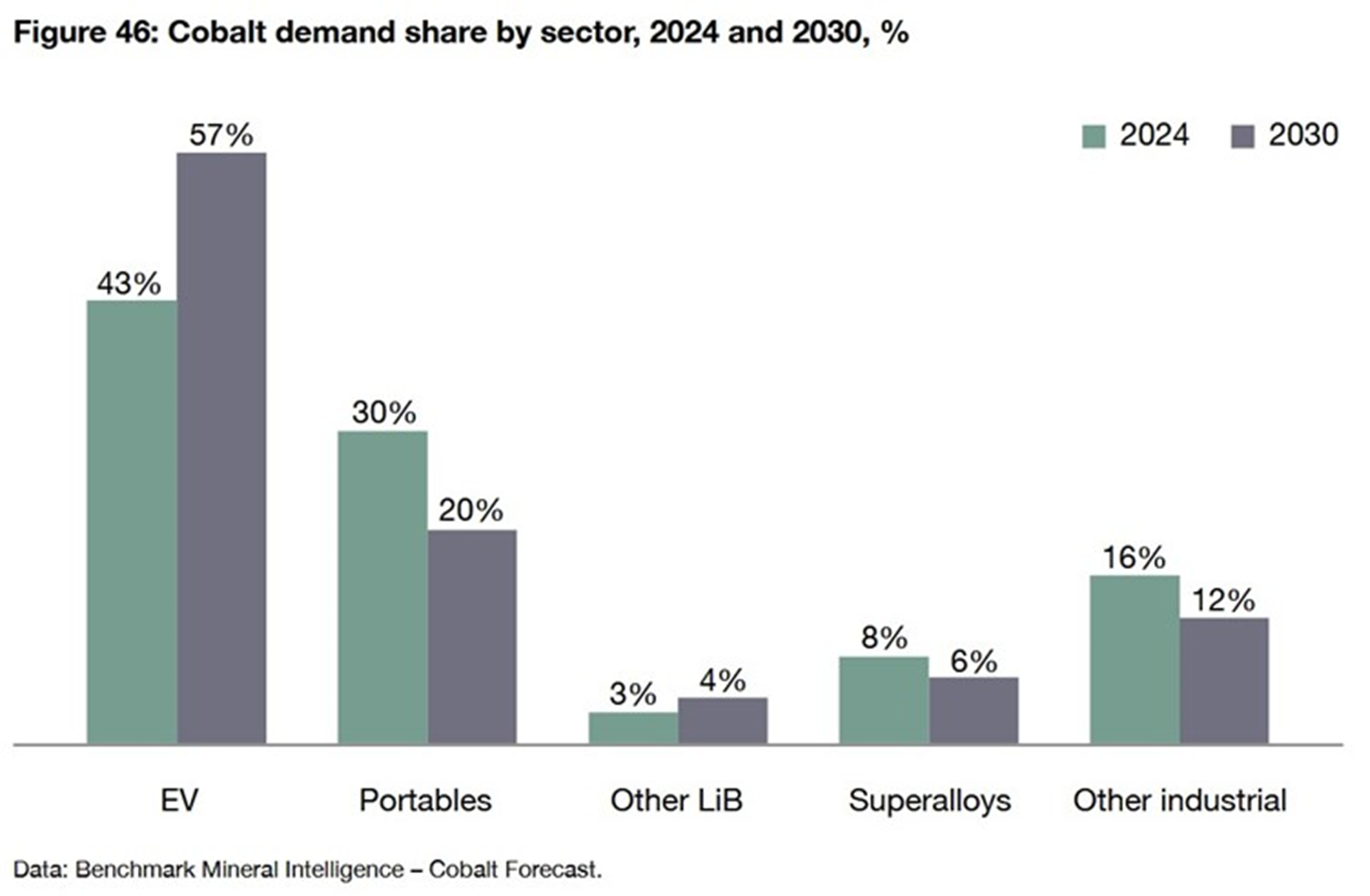
Meanwhile, global supply is expected to grow at an average annual rate of only 5% between now and 2030. The Democratic Republic of Congo (DRC), which accounted for 76% of primary supply in 2024, will see its share fall to 65%, while Indonesia’s share is expected to rise from 12% to 22% due to a rapid increase in production.
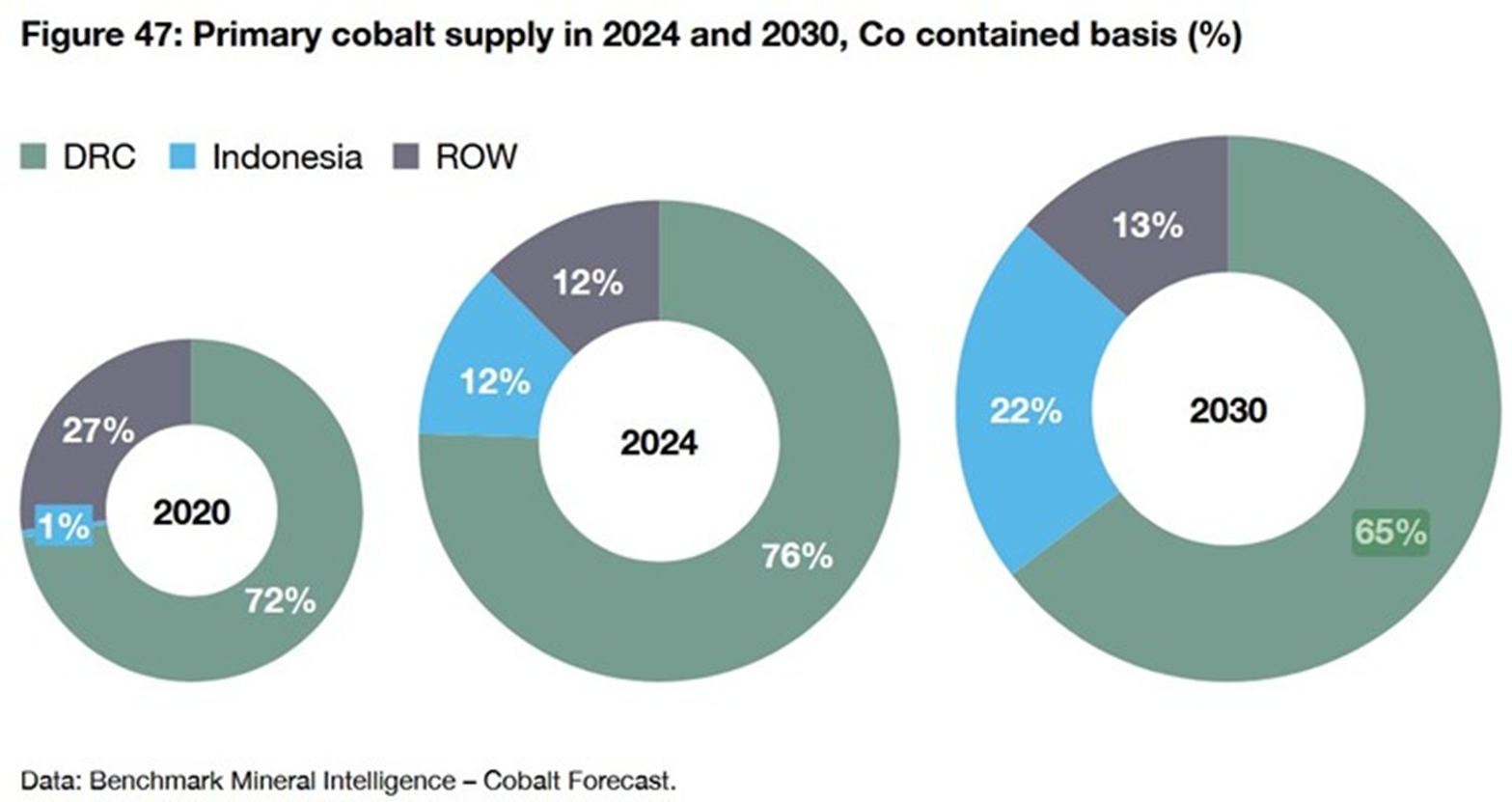
In the short term, market trends will largely depend on the strategy adopted by the DRC, particularly following the four-month ban on cobalt exports imposed in February 2025 to boost prices. This measure could be extended, but Kinshasa has not clarified its intentions. On March 14, the government announced plans to set export quotas and to cooperate with Indonesia to manage oversupply and better control prices. However, there is currently no information on how these decisions will be implemented.
Early this year, cobalt prices rebounded, spurred by the DRC’s export ban and an anticipated smaller surplus in the coming years. These conditions create a favorable backdrop for price recovery.
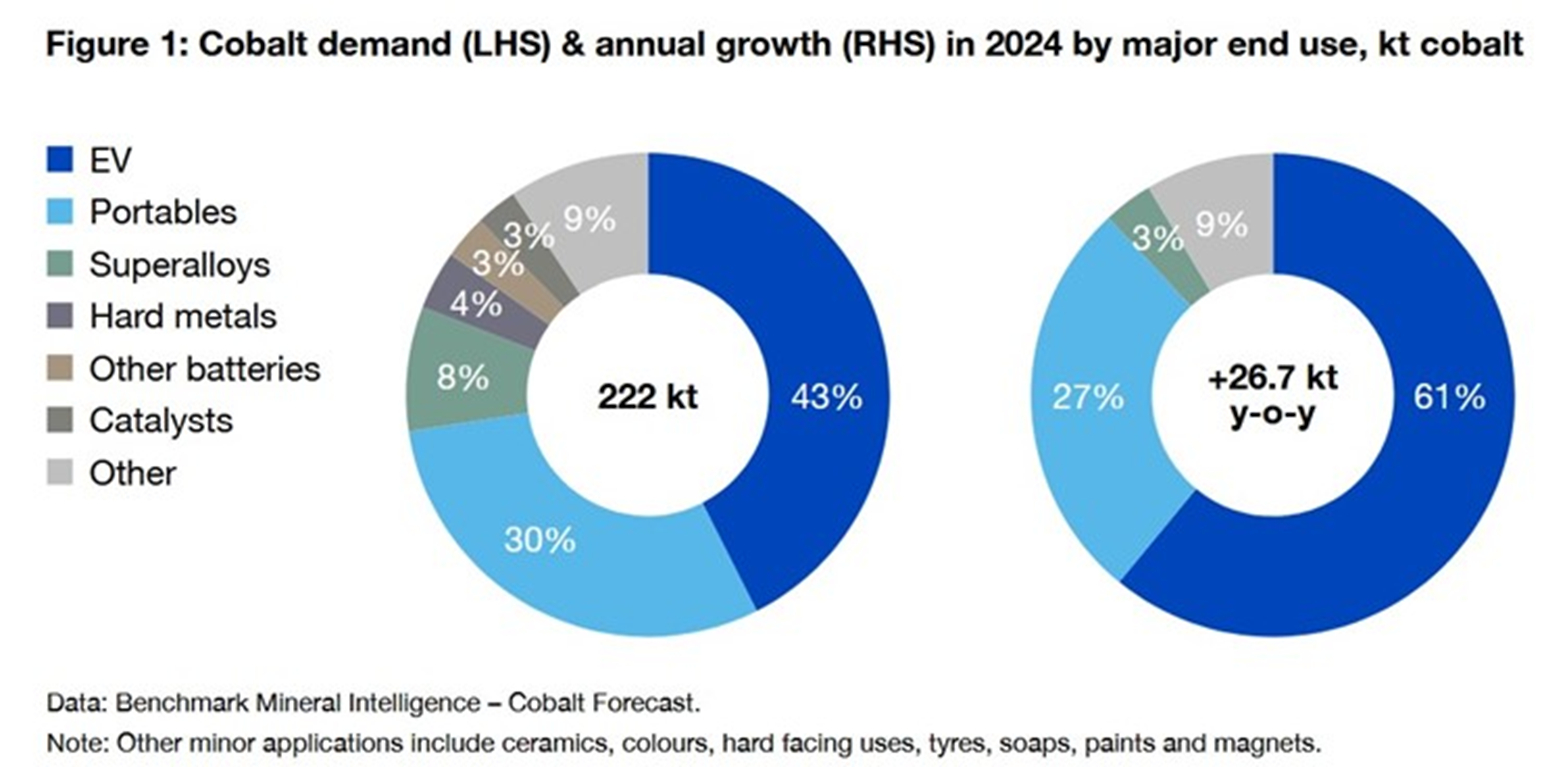
In 2024, global demand for cobalt rose by 14% to 222,000 tonnes. The electric battery segment was the main driver, accounting for 76% of total consumption and 94% of annual growth. Electric vehicles alone accounted for 43% of demand, with sales up 26%.
Demand for computers and mobile devices (phones, tablets, computers) also rose 12%. The rise of artificial intelligence, with its need for intensive computing, fueled an increase in battery capacity.
A surplus of 32,000 tonnes in 2024
Demand in the superalloys and military applications segments also grew, supported by rising defense spending.
But for the third consecutive year, supply growth outpaced demand. In 2024, global primary production reached 254,000 tonnes (+22% compared to 2023), driven by the ramp-up of Congolese mines operated by the Chinese group CMOC.
With 30,000 tonnes mined (+82% in one year), Indonesia established itself as the world’s second-largest producer. The market thus recorded a surplus of 32,000 tonnes in 2024—almost 15% of total demand—compared with 25,000 tonnes in 2023.
Founded in 1982, the Cobalt Institute brings together the main players in the cobalt value chain—including producers, users, recyclers, and traders—who represent around 80% of the global market.
This article was initially published in French by Walid Kéfi (Ecofin Agency)
Edited in English by Ola Schad Akinocho
Airtel remained DR Congo’s top mobile service provider, by sales, last year. It was ahead of Vodacom, Orange, and Africell. According to the country’s telecom regulator, the ARPTC, the subsidiary of the Indian group Bharti Airtel generated $741 million, or 35.5% of the sector's total revenues of $2.09 billion.
Compared to 2023, Airtel’s revenues grew by 7.5%. The Congolese watchdog is attributed to an aggressive sales strategy and ongoing investment in extending its network coverage. As in 2023, Airtel outperformed its rivals: Vodacom captured 32.6% of market revenues, Orange 28.1%, and Africell 3.8%.
Total sales (incl. VAT) (voice+SMS+data+mobile money+other VAS) in dollars

Airtel's momentum is largely based on growth in data and SMS consumption, despite stable revenues from voice, a segment in which Vodacom remains dominant. Airtel remains the leader in data revenues, with $365.5 million (37.7% market share), ahead of Orange (31.5%), Vodacom (27%), and Africell (3.8%). This performance is due to the competitiveness of its packages and the extent of its 4G network.
In the mobile money segment, Vodacom remains in the lead with revenues of $168.5 million (46% market share). Airtel comes second with $137.2 million (37.5%), followed by Orange ($58.5 million, 16%). Africell, despite a 168.3% increase in revenues to $1.7 million, represents just 0.5% of the market.
Number of active cell phone subscriptions

The DRC ended 2024 with 63.96 million active subscriptions (used at least once over 90 days), up 13.7% on 2023, corresponding to almost 7.7 million new subscribers. Vodacom dominates in terms of subscriber numbers, with a 36% market share. Orange and Airtel are neck-and-neck, with 29% each. Africell closes the ranking with 6%.
This article was initially published in French by Muriel Edjo
Edited in English by Ola Schad Akinocho
CRDB, a Tanzanian bank, closed its second year of activity in the Democratic Republic of Congo (DRC) on a negative note. According to the lender’s annual report, its Congolese subsidiary recorded a loss of 6.6 billion Tanzanian shillings or $2.5 million at the average yearly rate. Compared to 2023, the figure is 57% higher. Despite this, CRDB’s management is confident about the future.
According to the report, a sharp rise in operating expenses drove the losses. The expenses could not be offset by operating revenues, which jumped from $0.5 million to $5 million between 2023 and 2024.
The Congolese subsidiary's expansion strategy can explain this situation, as it seeks to gain a solid foothold in the local market. In Lubumbashi, the bank’s head office, a new branch was opened, and the workforce across the country doubled from 26 to 59 employees in one year.
Despite the losses, the bank's financial indicators are promising. The intermediation margin jumped from $643,000 to $2.9 million, mainly thanks to Congolese government bonds. Customer deposits rose to $8.4 million from $875,000 a year earlier, while total assets now stand at $70.2 million compared with $46 million in 2023.
"Although challenges remain, our long-term outlook for the Congolese market remains positive, underpinned by the country's economic potential and CRDB's commitment to strengthening its operational base," says group CEO Abdulmajid M. Nsekela.
CRDB Bank, one of Tanzania's leading banks, obtained authorization to operate in the DRC in May 2023. The bank made the strategic choice of Lubumbashi, in the Haut-Katanga region, as its headquarters, due to its geographical proximity and cross-border trade with Tanzania.
The bank is 55% owned by its parent company in Tanzania, while the Norwegian investment fund Norfund and the Danish IFU each hold a 22.5% stake.
This article was initially published in French by Timothée Manoke (intern)
Edited in English by Ola Schad Akinocho
More...
The African Development Bank (AfDB) will fund works to modernize the Mbujimayi-Ngandajika road in the Democratic Republic of Congo (DRC). A delegation from the pan-African bank has been in Mbujimayi since May 12, 2025, to carry out preliminary studies.
The project, according to Bruno Zalizali, water and sanitation expert at the AfDB, could be submitted to the Bank’s Board of Directors for approval by November, with start-up scheduled for 2026.
The 89-kilometer Mbujimayi-Ngandajika road is a strategic axis for farmers. They use it to transport their produce to the Mbujimayi market. It leads directly to Ngandajika, where an agro-industrial park is being built. This park is also financed by the AfDB under the Programme d'appui au développement agro-industriel de Ngandajika (PRODAN). The road’s modernization should boost agricultural activities and strengthen connectivity between the towns and their respective provinces.
The AfDB delegation's visit is part of a wider mission to supervise AfDB-financed projects in the region. These include the second phase of the Socio-Economic Infrastructure Strengthening Project (PRISE) and phase II of the Priority Air Safety Project (PPSA II), which involves the construction of Bipemba International Airport.
Ivanhoe Mines has announced updated resource estimates for its Western Forelands exploration project in the Democratic Republic of Congo (DRC). The company, which holds between 45% and 100% of the permits covering this area, reports that the Makoko, Makoko West, and Kitoko deposits now total 8.38 million tonnes of copper in so-called "inferred" resources, almost double the volumes estimated in 2023.
These new estimates are based on 86,000 meters of drilling conducted between November 2023 and February 2025. Ivanhoe groups these three deposits under the name "district of Makoko," a 13 km-long area where copper occurs at depth, in geological formations similar to those mined at the nearby Kamoa-Kakula mine.
Overall, 494 million tonnes of ore at an average grade of 1.70% copper have been classified as inferred resources. This classification designates volumes whose presence is deemed probable, but not yet certified due to insufficient data. These resources offer strong potential but require additional drilling campaigns to be confirmed.
The district also includes 27.7 million tonnes of "indicated resources" at 2.79% copper, or 773,000 tonnes of metal. This category offers a more reliable estimate than inferred resources.
This exploration work is part of Ivanhoe's strategy to develop a second copper production center in the DRC. Faced with growing global demand driven by the energy transition, the company has been conducting an extensive prospecting campaign for several years in the Western Forelands region, adjacent to the Kamoa-Kakula mining complex.
The 2025 drilling program, with a budget of $50 million, includes over 100,000 meters of additional drilling. The results will enable a new resource update expected in 2026.
However, the publication of these figures does not mean that Ivanhoe will be opening a new mine in the short term. At this stage, the Makoko district remains an exploration project, still far from the feasibility, environmental study, and financing phases. However, its proximity to the existing Kamoa-Kakula infrastructure could facilitate future production. The company also points out that the area remains open to exploration, meaning that the potential identified could be further expanded in future campaigns.
This article was initially published in French by Louis-Nino Kansoun
Edited in English by Ola Schad Akinocho
Last year, 2% of the cobalt produced in the Democratic Republic of Congo (DRC) came from artisanal mines. The figure, disclosed in the Cobalt Institute’s annual report published on May 14, 2025, is significantly lower than the years before. According to various organizations, in recent years, artisanal mining contributed between 10% and 30% to the country’s overall output.
"In 2018, when cobalt metal prices had reached over $40 per pound, smallholders' share represented around 10% of DRC production. By 2024, with the significant increase in supply in the DRC [and globally], Benchmark estimates that this share has fallen to less than 2% of national production, or around 1% of global production," says the Cobalt Institute.
The report does not provide detailed volumes for artisanal production in recent years, making precise verification difficult. The Congolese Ministry of Mines does not differentiate cobalt production or exports by mining type, unlike other minerals like diamonds, gold, or tin.
The Cobalt Institute report attributes the drop mainly to: the boom in industrial cobalt production and the decline in cobalt prices. However, the Cobalt Institute suggests artisanal mining volumes may rise again in early 2025 following Kinshasa’s February export suspension, which caused cobalt prices to increase by over 50%.
Artisanal and small-scale mining (ASM) faces criticism for poor traceability, child labor, and human rights violations. Dinah McLeod, Executive Director of the Cobalt Institute, emphasizes that the challenge is not to eliminate artisanal mining but to make it fair, safe, and free from abuses, as it remains a vital source of employment for many in the region.
The current decline in artisanal activity, often illegal, underscores the need for rapid formalization. Formalizing the sector would enable stakeholders to better benefit from favorable market conditions expected in the early 2030s, when supply deficits may emerge.
This article was initially published in French by Emiliano Tossou
Edited in English by Ola Schad Akinocho
The Japan International Cooperation Agency (JICA) has granted $27 million in non-repayable financing to the SNEL, the power utility of the Democratic Republic of Congo (DRC). The related deal was sealed on May 9, 2025, by the Congolese Minister of Foreign Affairs, Thérèse Kayikwamba Wagner, and the Japanese Ambassador to the DRC, Ogawa Hidetoshi.
This funding is meant to help boost access to electricity in the Mont-Amba district of Kinshasa. This district regroups the following municipalities: Limete, Lemba, Matete, Ngaba, and Kisenso.
The project involves rehabilitating the 220-kV Liminga and Funa substations, modernizing the power transmission system, installing new high-voltage transformers, and building modern control rooms. These upgrades should help stabilize the power supply in this part of Kinshasa.
This initiative is part of ongoing bilateral cooperation between the DRC and Japan. JICA had initially allocated $18 million to the project in November 2023, but after feasibility studies, the amount was increased to $27 million to meet project requirements
BK (intern)






